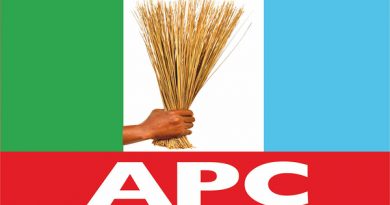“International traders maintaining floating storage offshore Lomé frustrate local refineries from emerging” _ Dangote
Aliko Dangote, Africa’s leading industrialist has identified entrenched interests behind the offshore Lomé fuel trade as the greatest obstacle to Africa’s quest for refining self-sufficiency.
Dangote while speaking at the West Africa Refined Fuel Market: Pathway to Regional Reference Market energy conference, warned that international traders operating a “fraudulent floating market” off the coast of Togo are actively undermining local refining efforts to protect their profits.
“Another major barrier is the offshore Lomé floating market—a uniquely African phenomenon,” Dangote said. “International traders maintain floating storage of over 2 million tons of petroleum products offshore Lomé. This was being sold at inflated prices due to the absence of local refining capacity. The moment our refinery came on stream, they slashed prices to maintain their grip.”
The founder of the now-operational $20 billion Dangote Refinery said these interests would resist any disruption to the status quo, no matter how beneficial it may be to the region.
“Make no mistake,” he cautioned, “those who profit from this system will do everything they can to prevent other refineries from emerging. Building a refinery threatens powerful interests, and they will fight back aggressively.”
Dangote also used his address to highlight the journey and challenges his company faced in delivering the 650,000 barrels-per-day refinery, the world’s largest single-train facility. He outlined the obstacles in three categories—technical, commercial, and contextual—stressing that the contextual hurdles, rooted in corruption and rent-seeking behaviour, proved the most difficult to overcome.
He urged policymakers, regulators, and industry leaders across the continent to support efforts that promote refining capacity and break the region’s dependence on foreign-controlled supply chains.
“Beyond infrastructure deficits, the most formidable challenge we faced was entrenched rent-seeking within the petroleum value chain across many African countries,” he said. “This sector has historically been a major avenue for corruption and rent extraction. That system resists change.”
Dangote noted that at the peak of construction, no foreign contractor was willing to take on the project. “They say Africa is very risky. They didn’t want to come to Nigeria to build a refinery,” he said. “So we had to take up the role of EPC contractors ourselves.”
He recalled how his team had to import over 150,000 containers, 2,600 heavy equipment units, and build a dedicated seaport because over 60% of the refinery components could not pass through existing Nigerian ports. “Let no one underestimate the complexity of building a world-class refinery,” he warned.
He praised the Nigerian National Petroleum Company limited (NNPC) for making crude oil available but criticised International Oil Companies (IOCs) for their lack of cooperation.
“The IOCs have been the most difficult in our journey. Even after securing the crude, transporting it became another bottleneck,” he lamented. “Skyrocketing port charges made up about 40% of total freight cost. That is, two-thirds of the cost of chartering a vessel with crew, insurance and fuel included.”
Despite these odds, the Dangote Group has begun exporting petroleum products. “From early June to date, we have exported about 1 million tons of PMS. This is equivalent to 50 days of consumption,” he said.
Dangote called on African governments to do more than issue refining licenses. They must enforce compliance.
“To those who say monopoly, I say let others build refineries too,” he challenged. “Encouraging other people to build refineries is the job of the NMDPRA and also the government. Anyone who has collected a license and isn’t using it, revoke it or put a yearly penalty on it.”




